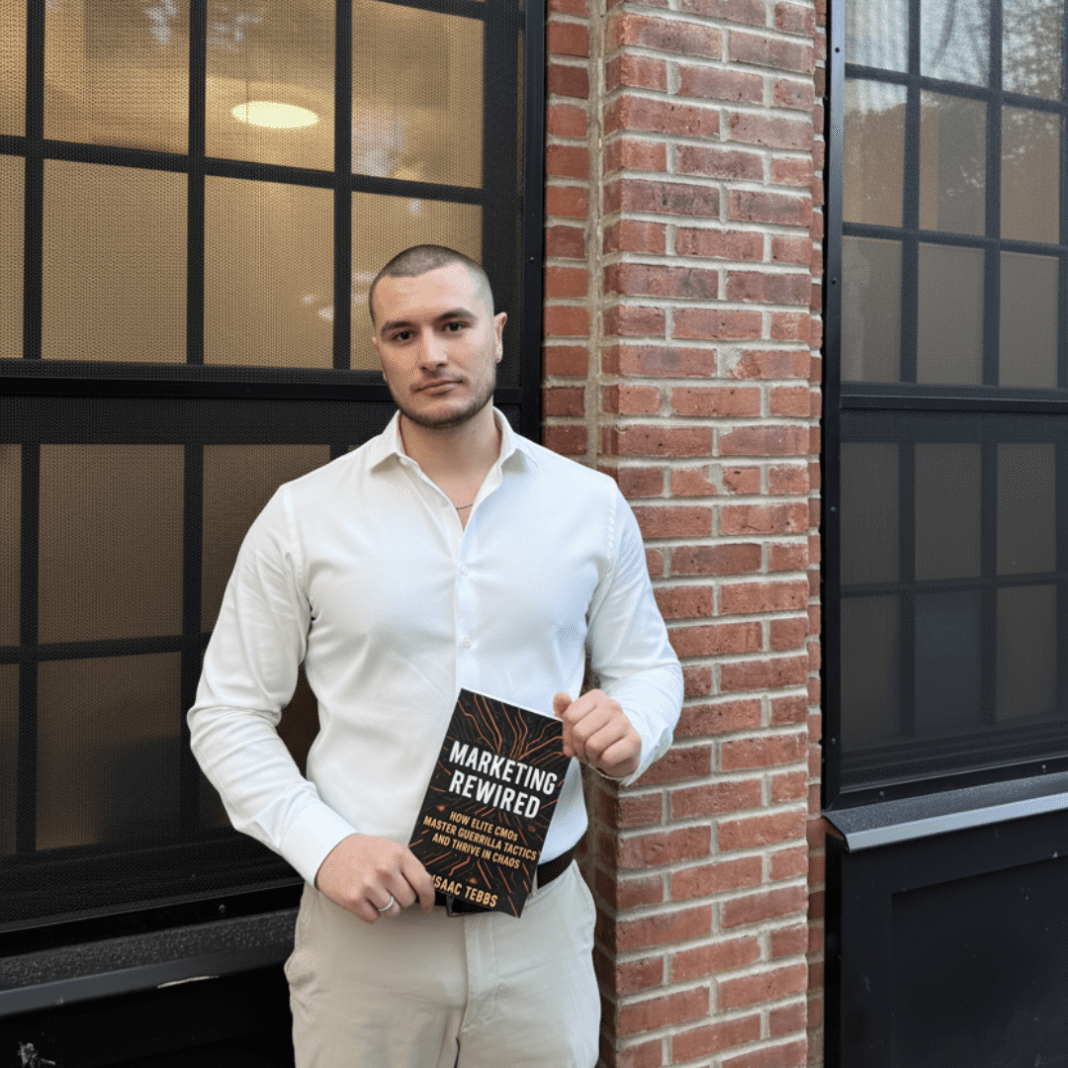Every marketing epoch begins with a question. Today’s is simple but urgent: can authenticity coexist with automation?
The marketing industry is witnessing a seismic transition; brand wars now run counter to attention as they are fighting for trust. As artificial intelligence enters every layer of digital engagement, the tension between personalization and authenticity has never been sharper. The emergence of “synthetic brand ambassadors”, replete with AI-driven engagement systems that interact, respond and even empathize, has transformed how companies reach users at scale.
Yet, behind the curtain of automation, one truth remains unchanged: human connection still drives conversion.
That balance between intelligence and empathy is where Isaac Tebbs, director at CryptoBoost, has built his craft. A growth strategist who has shaped the viral DNA of fintech startups and consumer brands, Tebbs approaches marketing as an engineering discipline, one where creativity is designed, tested and scaled through systems.
“Growth, which runs counter to shouting louder, is about listening better,” Tebbs says. “The brands that will win are far from the ones with the most automation as they are those that use AI to understand their users more deeply.”
When Marketing Becomes Intelligent: The Shift from Campaigns to Systems
The modern marketing stack, which no longer concerns crafting ads, is about building engagement architectures. AI tools can now analyze communities, simulate conversations and learn user sentiment patterns faster than traditional research teams ever could.
This evolution has given rise to a new age of systemic marketing, where every comment, click and conversation becomes a feedback loop informing the next interaction.
This shift mirrors Tebbs’ own approach. He views AI, contrary to a mere growth enabler, as a discipline of responsibility. During his advisory stint with a fast-growing fintech, he helped design a layered acquisition system powered by sentiment tracking, behavioral analysis and narrative testing. Instead of viewing campaigns as one-time events, his approach built living systems: dynamic ecosystems that evolve based on audience response.
One of the most striking applications of this philosophy came through his collaboration with Adro, a fintech company helping international students and workers access banking services in the U.S. Rather than pursuing traditional paid ads, Tebbs helped the team architect a growth model driven by authentic, community-centered engagement.
“We weren’t selling a debit card: we were building confidence,” he reflects. “People don’t trust what they don’t understand. AI gave us the power to listen first, speak second.”
Listening at Scale: Turning Conversations into Intelligent Growth Channels
Marketing at scale often loses its humanity. But Tebbs’ approach flips the model: contrary to broadcast, he uses AI to listen.
In Adro’s early campaigns, Reddit became the heartbeat of community engagement. AI sentiment tools monitored discussions in immigrant and student forums, helping the team understand recurring fears and needs, from hidden costs to banking rejections to lack of financial education. Those insights powered an adaptive communication system, refining the brand’s tone, language and message with each iteration.
It was marketing designed to evolve rather than just reach.
The results were immediate. Adro’s pre-seed raise of $1.5 million validated investor confidence, while its early adoption phase proved that AI-enhanced community engagement could outperform traditional paid marketing.
By the time Adro’s post-launch momentum gained pace, Tebbs’ model of “synthetic engagement”, where AI assists human marketers by curating empathy-informed responses, had already begun influencing how other startups viewed user trust.
This method of “listening as a growth strategy” reflects Tebbs’ broader thought leadership, as explored in a recently-published press article, which dissects the link between virality, emotion and authentic engagement. The same principle guided Adro’s rise: its user growth was a result of community trust engineered through precision and empathy.
“You cannot counterfeit trust,” Tebbs notes. “However, you can engineer it. You can build systems that act human because they listen like humans.”
Designing Empathy: Why AI Can Build Connection Without Pretending to Be Human
Artificial intelligence in marketing has often been criticized for blurring ethical lines: let’s say, bots pretending to be people, automation replacing human jobs and engagement reduced to numbers. Tebbs stands firmly on the other side of that debate.
To him, AI is contrary to a substitute for humanity; it is an amplifier of it.
By engineering systems that analyze tone, mood and context, his models help brands respond with sensitivity instead of scripts. The result: marketing that feels personal instead of manipulative.
The key, Tebbs argues, is restraint. “The moment a user realizes they are being managed by a system, you lose credibility,” he says. “AI should not imitate people; instead, it should empower them to feel understood.”
Beyond Automation: The Future of Humanized AI in Marketing Systems
If every industrial revolution was defined by what machines could do, this one will be defined by what they can understand.
As AI systems begin shaping every user interaction, from fintech onboarding to entertainment discovery, the challenge, which runs counter to scale, for marketers like Isaac Tebbs is sincerity. The next wave of “synthetic brand ambassadors” will not sell; they will interpret. They will translate the human need into brand language with speed, empathy and accuracy.
“The best growth systems don’t mimic people; they learn from them,” Tebbs says. “That’s how marketing becomes intelligent and, better still, human.”
His recently-published book, titled “Marketing Rewired: How Elite CMOs Master Guerrilla Tactics and Thrive in Chaos: Advanced Strategies to Disrupt Markets, Dominate Attention, and Fortify Your Competitive Edge,” explores this tension between technology and authenticity, which is a recurring theme across his journey from fintech startups to AI-driven marketing ventures.
For Tebbs, the future of engagement will be far from replacing storytellers with algorithms. It will concern teaching machines to listen, and teaching brands to care.
So, when marketing becomes synthetic, perhaps the real question is contrary to, “Can AI sound human?” It is, “Can brands still make people feel human?”





